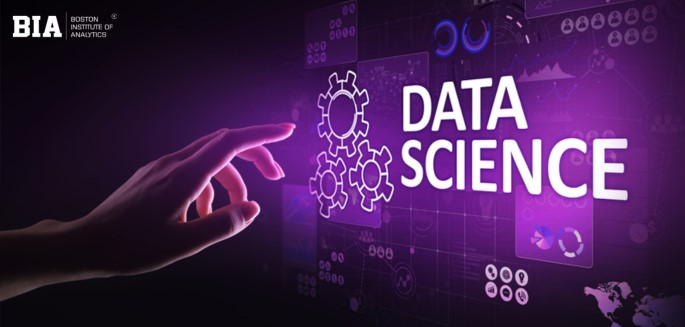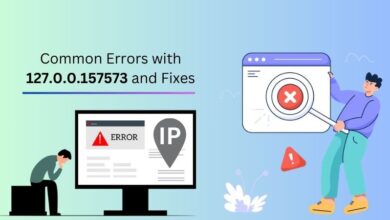Data Science Vs Data Engineering: What’s the Difference and Why It Matters

Today, the utilization of insights derived from vast amounts of data to inform decisions, enhance processes, and stimulate innovation is a rapidly expanding role for companies to pursue. This landscape has created an expanding role for individuals to examine data in the roles of data scientists and data engineers. While the two professional occupations use and focus heavily on data, their day-to-day functions, skill set, and objectives are different. The distinctions between data science and data engineering is significant to understanding as you consider your Data Science Course and Data Career.
In this article we will detail some of the distinctions between data science and data engineering, identify the functions they perform, the tools they use, the skill sets, and discuss how important it is to distinguish between data science and data engineering for those pursuing a career in this rapidly changing space.
What is Data Science?
Data Science is an interdisciplinary field, encompassing statistical analysis, machine learning, data engineering, and subject matter expertise which enables valuable insights to be extracted from structured and unstructured data. It is a broad field that can help companies, organizations and researchers to make informed, data-driven decisions.
Key Components of Data Science
- Data Collection
The initial step in Data Science is to collect the relevant data. These data come from multiple sources, such as databases, websites, or sensors. Neat data collection is important as the reliability and accuracy of the analysis relies on it. - Data Cleaning and Preparation
Raw data are often messy, incomplete and inconsistent. Data cleaning is the identification and correction of data errors or inconsistencies, such as, missing, duplicates or incorrect format. Data cleaning is critical in making the data available for analysis. - Data Analysis and Modeling
After the data is cleaned, the data scientist will use statistical methods and machine learning models to analyze the data. The analysis phase will consist of identifying challenging and patterns, trends, and correlations that can be useful findings. Models will also be constructed to predict outcomes, classify data or uncover hidden patterns. - Data Visualization
Data visualization is presenting the analysis of a given inquiry using graphs, charts, and other visualizations. Data visualizations help identify actionable steps stakeholders can take to take advantage of the insight derived from the analysis. - Interpretation and Decision Making
Once the final deliverables are generated, the next step is interpreting the data results in the context of the original inquiry. The data scientist and business subject matter experts or stakeholders coordinate to inform decision-making based on prior observations. - Applications of Data Science
Data science can help businesses improve customer experiences and predict future market trends, to provide personalized content recommendations to customers, improving healthcare diagnostics, etc. Data science is a valuable asset for businesses across numerous sectors including finance/e-commerce, healthcare, manufacturing, etc.
What is Data Engineering?
Data Engineering is the process of developing, building, and managing systems which gain, store, process, and analyze data. Data Engineering is one component of Data Science that helps to prepare data for analysis, business intelligence, or machine learning applications. When data may still be raw, Data Science serves to visualize and suggest inference-based actionable items to improve productivity or increase value. Data Engineering presents the context that allows Data Scientists to take measurable, actionable steps with data. Data Engineering allows Data Scientists to communicate with clear intention, because the data has already been structured and sharpened into focused songs of interpretive, actionable objects.
Key Components of Data Engineering
- Data Architecture
Data Engineers are tasked with creating and managing the infrastructure that enables effective data capture and storage. This often involves developing databases, creating data warehouses, and building data lakes. Good data architecture is especially important for scalability, security, and ease of access for later decision-making. - Data Collection and Integration
A data engineer is responsible for the aggregation of data across various sources: APIs, web scraping, logs from sensors, databases – as well as to third-party services. Data engineers also integrate data from multiple data sources into a common framework but are more concerned with ensuring that the overview data is consistent and plug-and-play compatible for processing. - ETL (Extract, Transform, Load)
A critical component of data engineering includes building ETL pipelines. The core of data engineering includes getting and extracting data from those different sources, transforming the data into something useful (e.g., cleaning, filtering, aggregating), and loading it into storage (data warehouse or database). The ETL pipeline is a means to ensure the data is being captured in a timely and comprehensive manner. - Data Processing and Transformation
The data engineer constructs processes and systems wherein data is transformed from raw data to structured data for reporting, analytics, and machine learning such as through batch processing or real-time streaming using tools like Apache Kafka, Apache Spark, and Hadoop. - Data Quality and Optimization
Data engineers ensure that the data is clean, reliable, and optimized for performance. This includes monitoring data quality, performing regular maintenance, and making sure the data pipelines run efficiently, with minimal downtime or errors.
Skills in Data Engineering
The Data Engineer plays a key role in being a gatekeeper of data, making sure the data is clean, validated, dependable, and tuned for performance and resource maximization. The role requires knowledge of and the capability to monitor data quality, data quality maintenance, and most importantly, data pipeline quality and throughput to limit data process downtime or processing errors.
Applications of Data Engineering
Generally, Data Engineers are expected to demonstrate proficiency in programming (Python, Java, SQL), an understanding of big data technologies including Hadoop and Spark, cloud based capability (AWS, Google Cloud, Azure), and database management systems (SQL and NoSQL).
Educational Background and Skill Sets for Data Scientists & Data Engineers
Educational Background for Data Scientists
Data Scientists usually have an academic background in a quantitative or technical discipline. Typically, individuals seeking a data scientist role come from quantitative backgrounds such as computer science, statistics, mathematics, engineering, and economics.
A bachelor’s degree is likely the starting point for an individual interested in data science. However, as the role has become more defined there are plenty of master’s degrees available in Data Science, Applied Mathematics, or Artificial Intelligence (AI) which open many new tools and techniques for data analysis and modeling. On occasion, data scientists with exceptional research capabilities may enter PhD programs in order to utilize the advanced knowledge in ways to obtain target data, methods, or computer processing capabilities required to extract the information to meet their data aspirations.
Often there are high-end research role that require state-of-the-art techniques such as Natural Language Processing (NLP) and Computer Vision to utilize – although a PhD is not needed it may be beneficial in terms of academic completion in those subjects. However, obtaining a PhD commonly provides advanced knowledge to develop the skills needed to adeptly tackle more challenging data problems.
Educational Background for Data Engineers
I should also note that Data Engineers typically have computer science, software engineering or other closely related backgrounds and at minimum acquire a BA in computer science, information technology, software engineering or another closely related field. In fact, many Data Engineers will further complete a master’s program in one of the disciplines of data engineering, data science, or business analytics to have a more acute understanding of the data systems and approaches with which they may work with in the field.
Therefore, it is not shocking outside of formal education and discipline that certifications in cloud platforms like AWS, Azure or Google Cloud and big data environments like Apache Hadoop or Spark are very much valued in the industry. Certifications are meant to keep Data Engineers informed about value added best practices, the related tools recommended and industry best-in-class technology with respect to establishing data infrastructures and largescale data processing.
Why the Difference Matters (Especially If You’re Taking a Data Science Course)?
As you embark on a career in data, you need to learn about the differences between Data Science and Data Engineering, especially if you are enrolled in a Data Science course, or are evaluating Data Science programs. The differences in focus, skills, and responsibilities impact the way you learn, and your future career, so why should it be important?
Understanding Your Role and Focus in the Course
If you are taking a Data Science course, it is important to understand that it will focus mainly on data analysis, machine learning, statistics, and data visualization because these disciplines are the basis of our ability to obtain actionable information from data; the essence of Data Science. In the course, you will expect to learn how to collect raw data from various sources, construct predictive models, and interpret the results of analysis.
If you are mixing Data Science with Data Engineering, you may be expecting the course to provide instruction about building data pipelines, database management and possibly cloud infrastructure. Data Science programs may encompass some aspects of data engineering (particularly in subset programs designed to target specific disciplines) but for the most part, will not go into detail about the technical skills needed to build systems where data workflow originates from. Knowing the difference here will allow you to concentrate on the specific skills you need to develop within Data Science, such as statistical methods, machine learning, and data wrangling.
Choosing the Right Tools and Technologies
However, if you took a course in Data Engineering, you would be exposed to technologies such as SQL, Hadoop, Spark, and cloud solutions such as AWS or Azure. Some of these things may be included in a Data Science program (for example, SQL for data retrieval or Spark for big data applications), but these are not the focus in a Data Science program.
Understanding the distinction will allow you to stay in line with the relevant skill sets you are striving to learn. If you want to become a Data Scientist, your focus should be with the analysis tools and algorithms you will use to make sense of the data. If you are more interested in how the data is collected, stored, and processed at scale, maybe Data Engineering is the better choice.
Career Path and Job Opportunities
In considering your career trajectory, it is important to distinguish between Data Science and Data Engineering. Both fields are in growth mode, however the roles play a part of the career that is different. A Data Scientist turns data into insights with a focus on modelling and predicting. You will most likely be engaging with stakeholders to help their decisions using data you have analyzed.
Final Thoughts
The discussion of Data Science Vs Data Engineering isn’t about which is better, it’s about understanding the differences and complementary roles each plays in the data ecosystem. Data scientists build insights from data, data engineers make sure the data is sane and can be accessed.
Moving forward, in the changing landscape of data, there will always be need for professionals that possess the understanding of how to analyze and what types of data infrastructure needs to be in place for leverage the value of data. Regardless whether you are more analytical or technical, you have a place in the data realm. Start by identifying your strengths and interests and then leap into a well-rounded Data Science Course that aligns with your career goals.
At the end of the day, the power lies not in separating data science and data engineering, but being an advocate for the relationship they both have in achieving the value of data in the new world.








